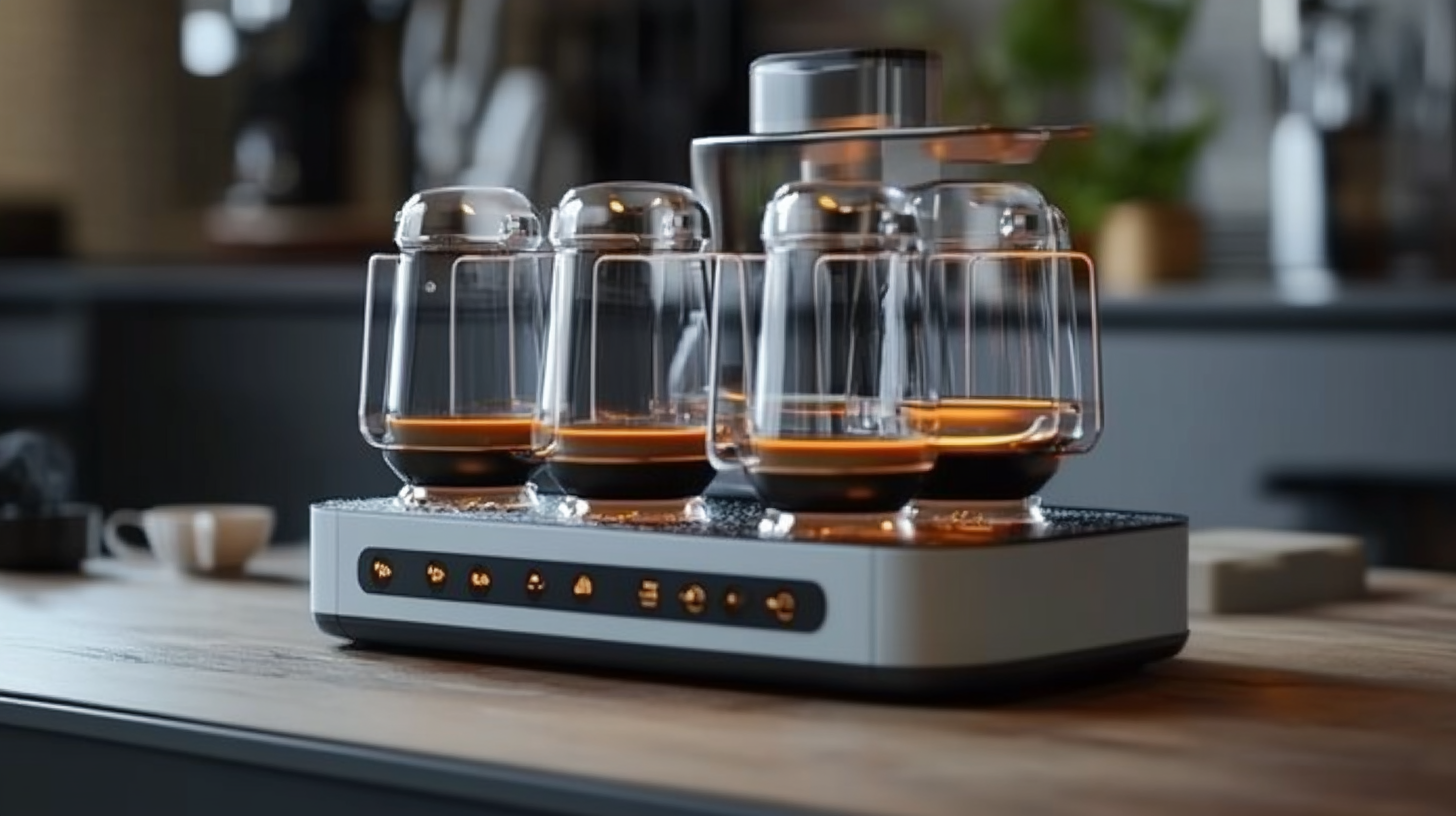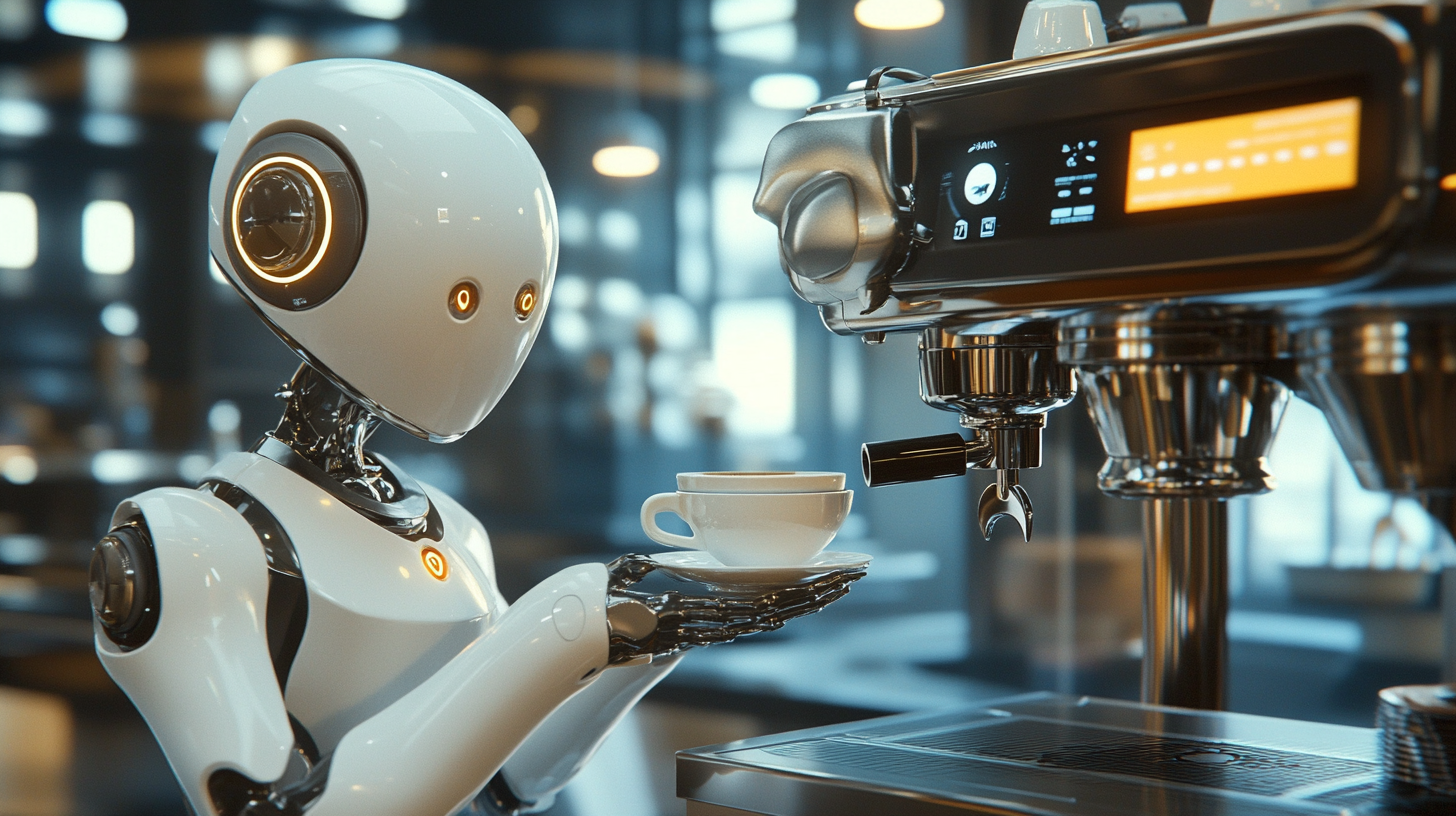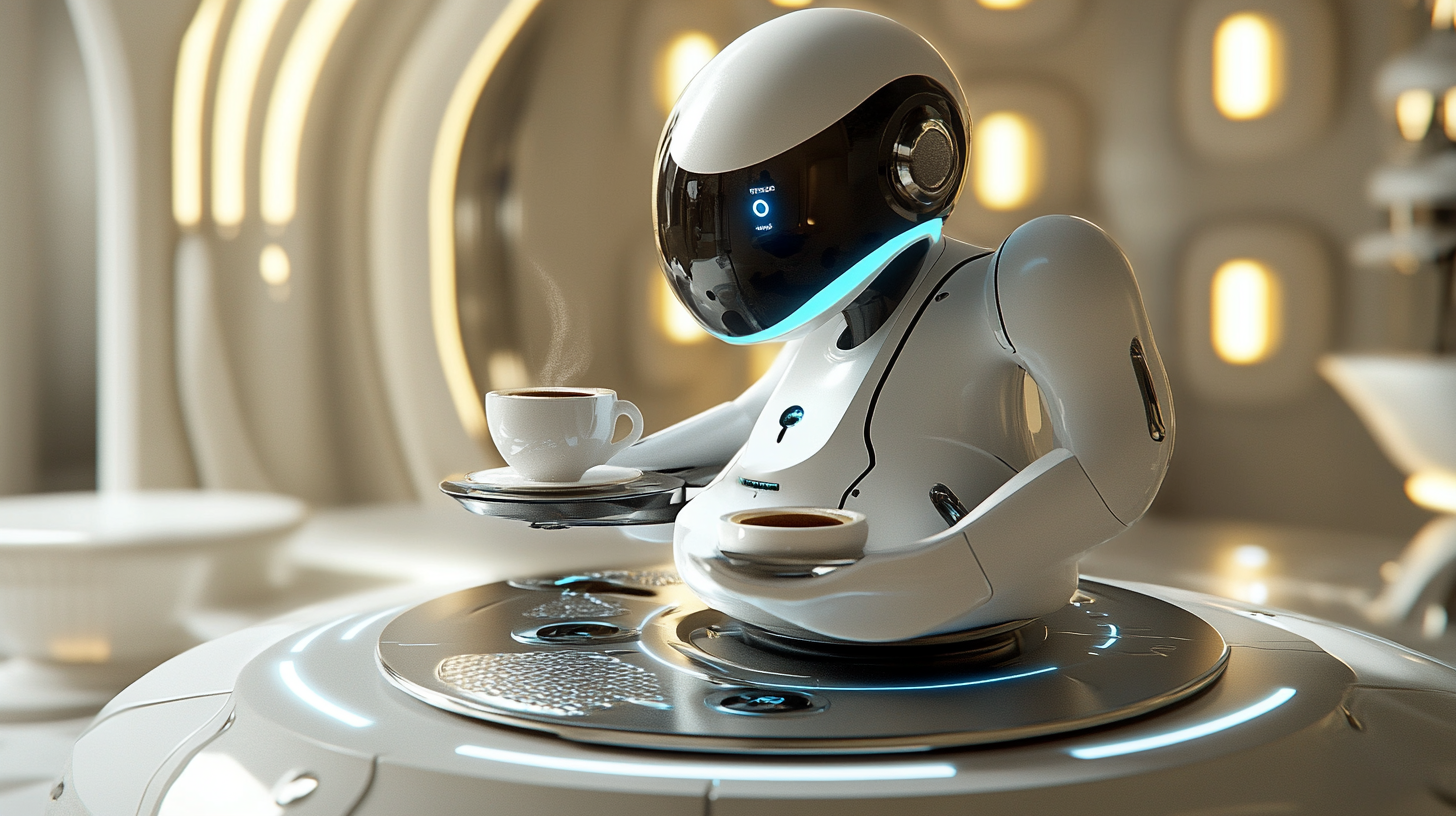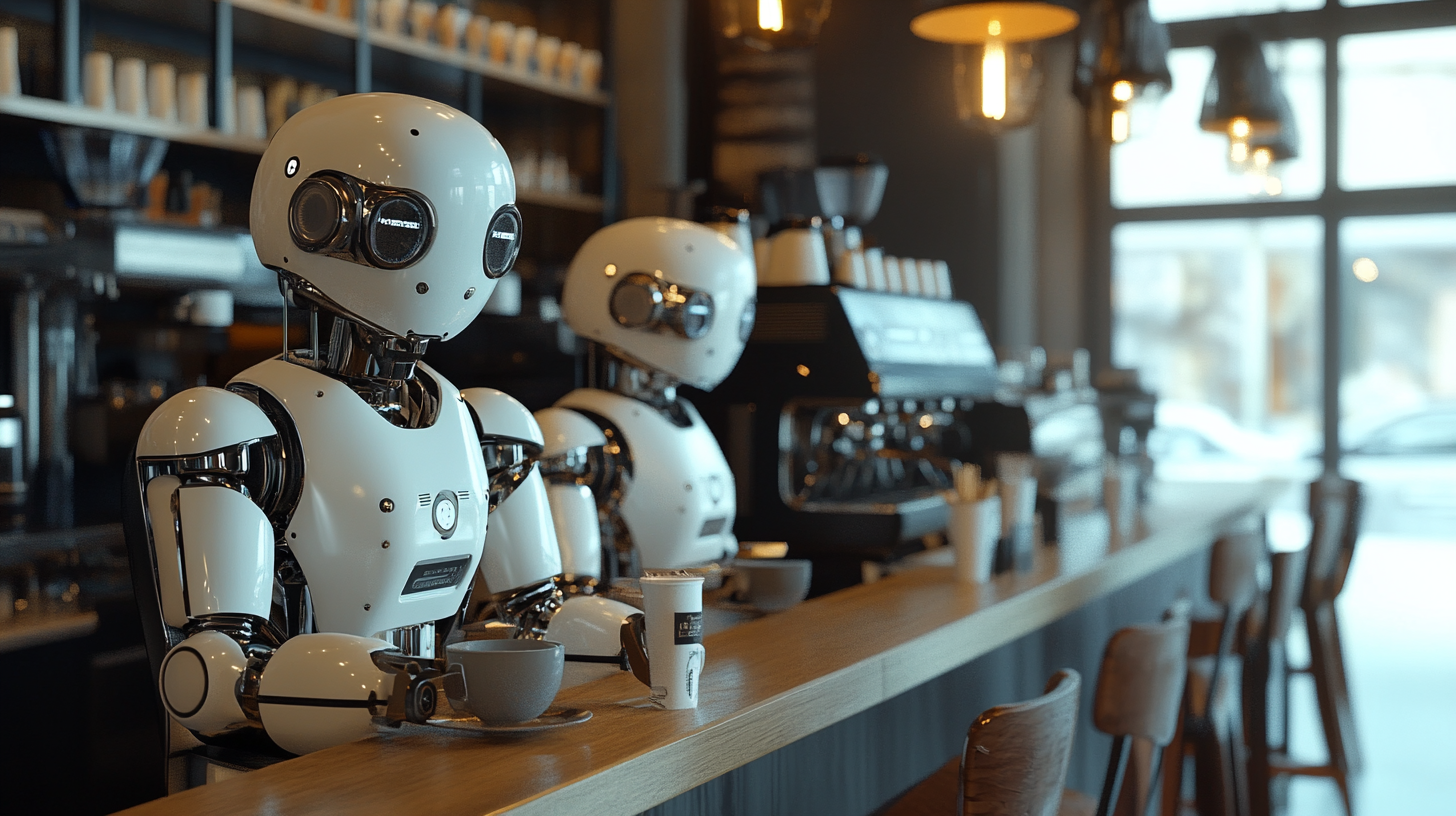In recent years, the landscape of coffee consumption has dramatically shifted, driven by advancements in technology and changing consumer preferences. Among the most intriguing developments is the emergence of the Robot Coffee Shop, where automation meets artisan coffee brewing. These innovative spaces not only offer convenient access to high-quality beverages but also redefine the customer experience, blending the charm of traditional coffee culture with the precision of modern robotics. As coffee lovers seek efficiency without sacrificing flavor, the Robot Coffee Shop serves as a testimony to how technology can enhance our daily rituals.
The evolution of automated coffee experiences doesn't stop at mere convenience; it represents a broader trend toward personalization and sustainability in the food and beverage industry. With the ability to customize orders with precision, consumers can enjoy their favorite brews perfectly tailored to their tastes. Moreover, the integration of eco-friendly practices within these robotic cafes illustrates a commitment to reducing waste and energy consumption. In this blog, we will explore the journey of automated coffee experiences, delving into the inspiration behind Robot Coffee Shops, the technology transforming our relationship with coffee, and what the future holds for this fascinating fusion of robotics and the coffee culture we cherish.

The evolution of coffee-making has undergone a remarkable transformation, largely driven by technological advancements and changing consumer demands. In recent years, smart coffee machines have emerged as leading players in the market, seamlessly blending convenience with quality. These machines offer a range of features, from customizable brewing options to app connectivity, allowing users to prepare their favorite beverages with just a touch on their smartphones. The rise of smart coffee machines reflects a broader trend toward automation and smart home integration. Consumers are increasingly seeking appliances that not only perform tasks but also enhance their daily routines. As a result, manufacturers are focusing on developing coffee machines equipped with advanced technology that caters to a more personalized brewing experience. Features such as grind size adjustments, temperature control, and even integrated milk frothers are becoming standard, marking a shift away from traditional coffee makers. Moreover, the market for smart coffee machines is witnessing significant growth, fueled by the rise of the coffee culture among younger generations. These coffee enthusiasts prioritize quality and convenience, seeking machines that not only brew exceptional coffee but also fit seamlessly into their modern lifestyles. As brands continue to innovate and expand their offerings, the future of coffee brewing looks brighter than ever, promising an exciting journey filled with flavor and convenience at every turn.

The Rise of the Internet of Things (IoT) has transformed many aspects of our daily lives, and coffee brewing is no exception. IoT-enabled devices have taken the traditional coffee experience and elevated it to new heights, making each cup not just a routine but an engaging ritual. From smart coffee makers that you can program remotely to coffee apps that learn your preferences, technology is creating a seamless interface between users and their beloved brews.
One of the most significant impacts of IoT on coffee brewing is the personalization of the coffee experience. Through connected devices, users can adjust brewing parameters such as temperature, strength, and timing from their smartphones. For instance, a coffee maker linked to your home network can brew your favorite blend just as you wake up, ensuring that your first sip of the day is always perfect. Moreover, these devices often come with built-in sensors that gather data, allowing them to learn your preferences over time and optimize the brewing process for maximum flavor.
The integration of IoT in coffee brewing also enhances convenience and accessibility. Imagine being able to control your coffee machine from your office or while running errands, ensuring that a fresh pot is ready as soon as you arrive home. Innovations like these not only save time but also make it easier for busy professionals to maintain their caffeine routines. While traditional coffee brewing requires more hands-on effort, today's smart options are designed to fit seamlessly into the fast-paced lifestyle, proving that technology and coffee can indeed go hand in hand.

In recent years, consumer preferences in the coffee market have shifted significantly from traditional brewing methods to automated coffee experiences. According to the National Coffee Association’s 2022 report, approximately 44% of coffee consumers now own a single-serve coffee maker, a sharp rise from just 30% in 2018. This trend highlights a growing inclination towards convenience as consumers seek solutions that fit their fast-paced lifestyles.
Automated brewing methods offer the advantage of consistency and ease of use, catering to a generation that values time savings while still wanting a quality cup of coffee. A recent survey by Statista revealed that 67% of coffee drinkers under 35 prefer using machines that can automate different brewing parameters compared to manual methods. This preference not only reflects the desire for efficiency but also a willingness to embrace technology in everyday routines.
However, traditional brewing remains resilient, especially among specialty coffee enthusiasts who appreciate the art and ritual of manual brewing. The Specialty Coffee Association reported that 38% of consumers still favor brewing methods like pour-over and French press, valuing the depth of flavor and craftsmanship they bring. The challenge for coffee brands lies in balancing the allure of automated experiences with the authentic, hands-on approaches that some consumers still cherish.

As technology continues to reshape our daily routines, artificial intelligence (AI) is paving the way for a completely new approach to coffee experiences. By utilizing sophisticated algorithms and machine learning techniques, companies are now able to craft personalized coffee recommendations that cater to individual tastes and preferences. Imagine waking up to a coffee maker that knows exactly how strong you like your brew or the precise flavor notes that appeal to your palate, all thanks to AI-driven insights.
One of the most intriguing aspects of AI's role in coffee personalization lies in its ability to analyze vast amounts of data. This data can include factors such as previous purchases, seasonal trends, and even feedback from taste tests. By processing this information, AI systems can suggest personalized blends that not only match your historical preferences but also introduce you to new flavors that you might not have considered. This means that coffee lovers can explore a more adventurous world of tastes without the guesswork, enhancing the overall coffee experience.
Moreover, AI is not just limited to bean selection; it also extends to brewing techniques. Advanced machines equipped with AI can adjust water temperature, extraction time, and even the grind size based on individual preferences. This level of customization ensures that every cup of coffee is not just a beverage, but a tailored experience that reflects the unique tastes of each consumer. As automated coffee experiences continue to evolve, the integration of AI will undoubtedly deepen our connection to this beloved drink, making the ritual of coffee more engaging and enjoyable than ever before.
The coffee industry has seen a significant transformation in recent years, driven largely by advancements in automation technology. According to a report from Mordor Intelligence, the global coffee machine market is expected to grow at a CAGR of 7.4% between 2021 and 2026, reaching over $8 billion. This rapid growth underscores a rising consumer demand for automated coffee solutions that not only enhance convenience but also deliver a consistent quality in every cup.
Innovations in automated brewing technologies have led to the development of machines that can brew a variety of coffee styles at the touch of a button. Smart coffee makers equipped with IoT technology allow users to customize their brewing process remotely through mobile apps. A survey by Statista indicated that 42% of coffee drinkers are interested in smart home appliances that provide seamless integration with their daily routines. Such innovations cater to the evolving preferences of consumers who seek efficiency without compromising on flavor.
Future trends suggest that automation will extend beyond brewing to encompass every aspect of the coffee experience. For instance, companies are investing in AI-driven barista technology that can learn individual taste preferences and adapt recipes accordingly. According to a report by Grand View Research, the AI in coffee machines market is projected to surpass $5 billion by 2027. As the industry continues to innovate, we can expect a shift towards personalized coffee experiences, further blurring the lines between traditional coffee preparation and automated solutions.